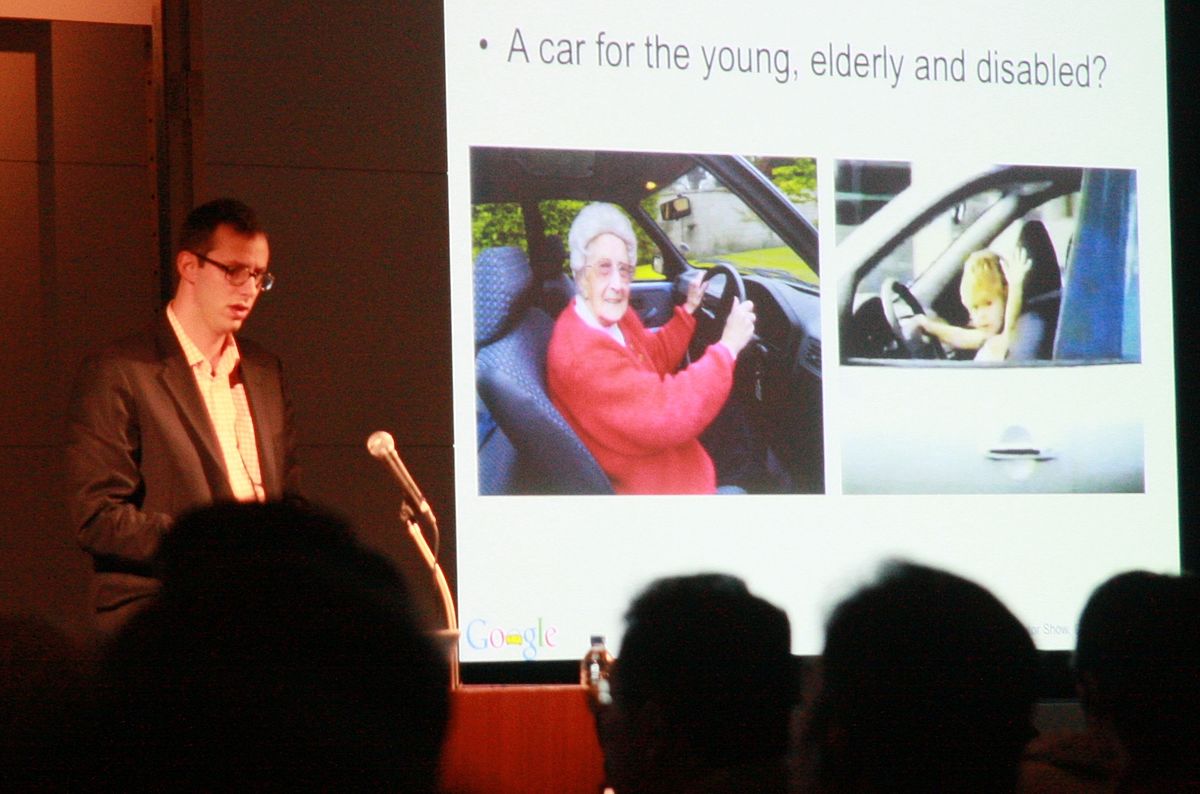Related:
Google's Stewardship of GNU/Linux (Android, Chromebooks and More) in Doubt After Company Resorts to Patent 'First Strikes'

Reference: Anthony Levandowski. Credit: shinnygogo, licensed under the Creative Commons Attribution-Share Alike 2.0 Generic licence.
Summary: Another look at cases where patents are used as a sort of revenge/leverage over completely unrelated disputes, or matters pertaining to alleged copying rather than patent infringement per se
THE LATEST in Google v Uber (Google by another name) was covered earlier this month. What's noteworthy about this case is that it's Google first time (as far as anyone is aware, based on public action) resorting to patent aggression -- no matter the excuses/justifications for it -- after nearly two decades on the scene. The USPTO had granted patents that Google essentially bought and a popular magazine has just expressed concerns that patent wars like these may "Kill the Self-Driving Car" (alluding directly to this case):
Google vs. Uber is just the first salvo in what could be a nasty legal tug-of-war over who makes the biggest stack of money on the future of moving people around.
The case has generally been reduced by about 75% (little of it left in terms of the number of patents involved/asserted) and
the judge says "Waymo may be in “a world of trouble” if it can’t prove actual harm by Uber".
"Google’s division sued Uber back in February," it said, "alleging that one of its own former engineers, Anthony Levandowski, stole 14,000 proprietary files and took them to his new startup, Otto (which was quickly acquired by Uber). However, Uber says it never received them and so it couldn’t have and didn’t implement them into its own products, services, or prototypes."
Whatever the case may be, resorting to patent warfare was a big mistake from Google and we hope the lawsuit will be withdrawn entirely. What Google did shows that it's willing to use patents offensively and therefore Google cannot be trusted with
any patents under its belt.
Incidentally, there is
this similar case in Florida where Axon (Taser rebranded to dodge the bad publicly) wants a monopoly on deadly weapons and uses patents to enforce this monopoly. To quote:
Axon, the company formerly known as Taser, said Monday that it has successfully defeated a Florida company in a patent lawsuit over its electrical stun gun design. For Axon, the victory is the third against knockoff rival firms in the last seven years.
Last Friday, a federal judge in Florida found that a company called "Phazzer" (yes, like "phaser") "engaged in a pattern of bad faith behavior" as the case has unfolded. Phazzer made a product strikingly similar to the Taser. And the case involving Axon was first filed in 2016, shortly after a Florida county sheriff decided to switch from Taser weapons to Phazzer (largely over cost reasons).
The term "Phazzer" probably predates Axon/Taser (science fiction movies) and the retreat to patents over potentially different gripes (like in the above-mentioned Levandowski dispute) shows that patents became more like a weapon of revenge. This oughtn't happen. If almost anyone is infringing someone's patent (or patents), then it's just a tool of mass coercion.
⬆

